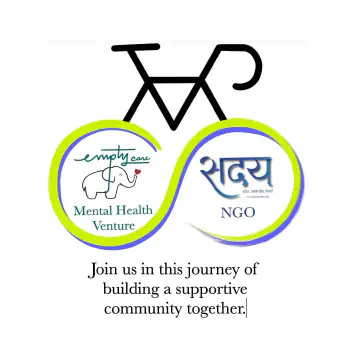Expressions: Expressing oneself (Everyday Problems Support Group)
Not gathering.Accepts Participants via Email.
A safe space for individuals to explore and express their thoughts and emotions through various forms of creative expression.
FAQ
-
Who is this support group for?
For individuals who are looking for an offline support group in Delhi, to explore and express their thoughts and emotions through various forms of creative expression.
You may clarify the above details with them directly. Get to know them 👇
Key Details
This meetup is part of our handpicked list of communities 🤗
Carefully curated
Community-led
Reach out directly. No Gatekeeping.







